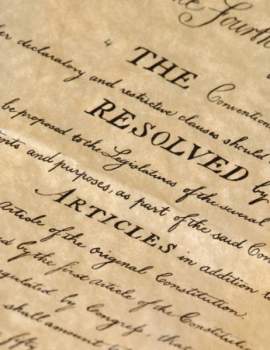
The Case Profile of ENRON

What is the ENRON Corporation?
ENRON was a multinational energy corporation that was founded in Omaha, Nebraska; subsequent to a merger with a Houston-based Energy Company, ENROM moved its headquarters to Houston, Texas. The ENRON Scandal is considered to be amongst the most prolific and widely-recognized examples of financial fraud cases within the history of the United States; the crimes of ENRON involved the defrauding on investors and fellow employees of monetary losses estimated to exceed $72 billion:
Investors in the ENRON Corporation were deceived into the belief that their respective investments were rendering massive amounts of financial gain as a result of the figures illustrated by the fraudulent earnings reports – this is estimated to have contributed to a financial loss exceeding $70 billion
The executives of ENRON illegally obtained these funds in lieu of funneling them back into their rightful place in the corporation’s budget; this not only led to the bankruptcy of the ENRON corporation, but also liquefied pension funding set aside for upwards of 22,000 ENRON employees – this figure is estimated to have exceeded $2 billion
The Case Profile of the ENRON Corporation
The following is a case profile of both the crimes of certain members of the ENRON Corporation, as well as a legal classification of statutory legislation associated with the case:
Foundation of the Corporation: ENRON was founded in Omaha, Nebraska on 1985.
Location of ENRON: Houston, Texas
Date of the Crime: 1985 to 2002
Criminal Charges: Financial Fraud including Securities Fraud, Wire Fraud, Embezzlement, False Reporting, Investment Fraud, and Tax Evasion:
Securities Fraud; the production of fraudulent earnings reports reporting deceitful and fallacious figures with regard to gains rendered through investments
Embezzlement; criminal activity that involving the attainment of property, assents, monies, funding, or assets belonging to a business or commercial endeavor through illegal, unlawful, and illicit means as a result of the responsibilities latent within a specific position of administration
Money Laundering; a criminal act of deliberately concealing the nature - or source - of matters involving finance, which can include revenue, income, expenses, investments, and banking
Tax Evasion; the falsification of income and earnings in order to both conceal their earnings, as well as avoid the satisfaction of taxation due
Legal Classification: The ENRON Scandal spanned both Commercial Law and Criminal Law:
Criminal Law; a legal specialty that focuses on both the prosecution and defense of criminal activity conducted in both public, private, and electronic sectors
Financial Law; a legal specialty that focuses on legislation applicable to the activity, exchange, and the circulation of monies or currency
Date of the Trial: Subsequent to an investigation led by the Securities and Exchange Commission between 2001 and 2002, the masterminds of the ENRON scandal were charged and convicted in 2004
Notable Details and Personal Information: The following personal details have been considered to be contributory to the behavior and criminal actions undertaken by ENRON; in addition, these case details were made mention within ENRON’s criminal trial:
Ken Lay; Chief Operations Officer of ENRON (1985-2002) – sentenced to a 10 year prison term
Jeff Skilling; Chief Financial Officer of ENRON (1990-2001) – sentenced to a 24 year prison term
NEXT: The Case Profile of Jack Abramoff




















